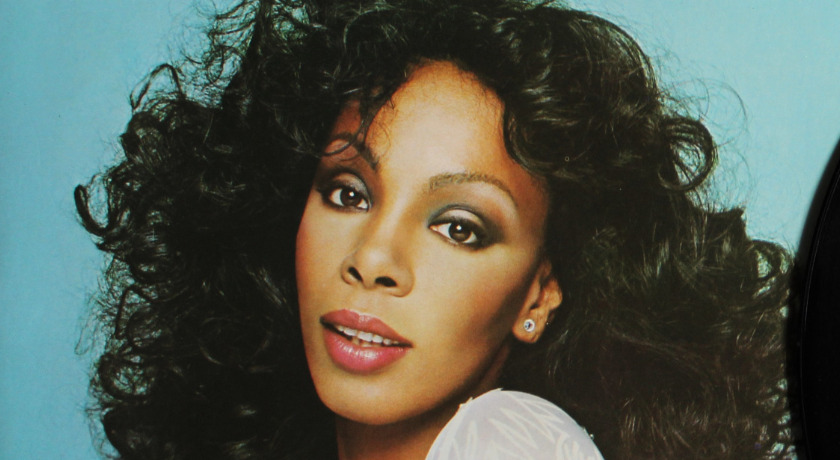Donna Summer is known to people around the world as “The Queen of Disco”. She rose to incredible fame in the 1970s and her songs and beautiful voice touched the hearts of fans everywhere.
But despite her fun-loving, good time music sound, she had gone through so much darkness in her life that it took a heavy toll on both herself and her family.
Last week marked 11 years since Summer had passed away at the age of 63 from lung cancer. In honor of her life, a new documentary, co-directed by Summer’s daughter Brooklyn Sudano and Oscar-winning director Roger Ross Williams, is now streaming on HBO Max, titled, Love to Love You, Donna Summer, which explores the life of the acclaimed singer and performer on and off the stage.
And what a life she had off the stage.
Summer endured s-xual and physical abuse from the time she was a teenager into the height of her career, struggled with daunting suicidal thoughts, and almost imploded her career with comments made about the LGBTQ+ community, in which made up a good portion of her fan base.
Donna grew up in Boston, MA to a very religious family and began singing in her church choir from a young age, per The Guardian. But her family, her church, and even the community she lived in were sources of early abuse she suffered.
As a child, she was often victim to racism, having been beaten numerous times by white gangs which left a lifelong scar on her face that made her feel “ugly” and “inadequate”.
Home life was no better, as she suffered physical abuse from her father who once smacked her for wearing red nail polish, saying that “that’s what wh-res wore.”
So, when she sought solace in the only safe place left in her life – her church – she was even subject to abuse there. As a teenager, Summer was a victim of s-xual abuse committed by the pastor.
The singer’s brother, Ricky Gaines, explained in the documentary that the pastor “did the devil’s work better than most,” adding, “It became a defining moment in her life.”
Finally pursuing a career in music and trying to escape the vicious cycle of abuse she continually found herself in, she rose to the top of the charts with her single, “Love to Love You Baby” in 1975, which became the anthem and arguably the inspiration of the Disco scene.
Even then, as famous, talented, and loved she was globally, she was immediately labeled as a sex symbol more so than the title of a singer or musician that she so well deserved. And even though she was starting to achieve what most people dream about, she refers to those times as the darkest of her days.
“The most dismal days of my existence were at the height of my career,” she once said.
In addition to struggling with her public image, she found herself in yet another abusive relationship with artist Peter Muhldorfer, whom she met in Germany and was seemingly jealous of her fame.
Summer’s manager, Susan Munao, recalled a phone she received one night when Donna and Peter were together in which Peter had knocked Donna unconscious, leaving her with a black eye and broken ribs.
“She was becoming a star and he could not handle it,” Munao stated, per USA Today.
It was around this time that Donna contemplated suicide. One night in 1976 at a New York City hotel, she attempted to jump from the ledge outside her room.
“I said, ‘I’m getting out of here.’ I put my foot out the window,” she once said about the incident. As she climbed, her foot got wrapped up in the curtain and she was stuck. It was then that the housekeeper entered the room and saw her on the ledge.
“Another 10 seconds, and I would have been gone,” Summer admitted. “I felt God could never forgive me because I had failed him. I was decadent, I was stupid, I was a fool. I just decided that my life had no meaning.”
She struggled greatly from there on out with her mental health. One concert in 1983 added to her difficulties – this time allegedly at her own fault – as she made the infamous comment, “God made Adam and Eve, not Adam and Steve.”
At this point, she had even turned her own fans against her, much of which were made up of the LGBTQ+ community, resulting in a widespread boycott of her music.
She later retracted her comments and saw the fault in her own viewpoints, having become a born-again Christian around the same time she made the homophobic comments.
“To have this asterisk on your legacy was devastating,” her daughter Brooklyn said in the new film. “That was very difficult for her to get over, because she loved people and particularly that community. Again, it’s about healing. It’s acknowledging that this was a terrible thing that was super-hurtful.”
Having suffered so much in the public eye and in her personal life, she ultimately decided to keep her eventual cancer diagnosis a secret from everyone except her husband, Bruce Sudano, and her three children, Brooklyn, Amanda, and Mimi.
She passed away in 2012, shocking fans around the world, and even close friends who were unaware of her illness. Bruce admitted that his late wife never wanted to “give death power”, as well as the media any more reason to talk about her.
Having experienced all these struggles alongside her mother, Brooklyn says making the documentary was extremely “healing” for her and her family.
“The experience has been very healing for us. It’s important to talk about these difficult things, things that may not be so easy to face,” she explained. You’re never going to heal if it’s kept quiet or swept under the rug. Hopefully, this film will inspire other families to have those kinds of discussions.”
Love to Love You, Donna Summer is now streaming on HBO Max.
If you or someone you know is having thoughts of suicide, please contact the National Suicide Prevention Lifeline at 1-800-273-TALK (8255).
Sources:



